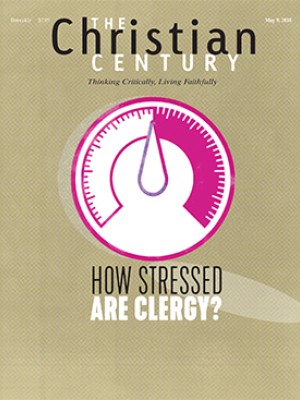Christians were key bloc in Egypt’s election
Many Copts fear a resurgence of militant power more than the autocratic tendencies of President Abdel Fattah el-Sisi.
Since Abdel Fattah el-Sisi took over Egypt’s presidency four years ago, he has worked to improve life for Coptic Christians, giving them rights and benefits nearly equal to those of Muslims, even as their churches have been attacked by terrorists.
His recent campaign for reelection focused on boosting turnout, and the country’s more than 10 million Coptic Christians were key to that goal.
Speaking a few weeks before the March election, human rights researcher Ishak Ibrahim said, “Pastors are telling congregants that it’s an imperative to vote and that staying at home in these elections is a sin.”
After three contenders were imprisoned and four other opponents withdrew, el-Sisi defeated his remaining opponent with 97 percent of the vote.
Many Copts fear a resurgence of militant power more than the autocratic tendencies of el-Sisi, a former head of military intelligence and army field marshal. A year ago 43 people were killed in bombings at churches in Alexandria and Tanta, and 28 pilgrims were murdered on their way to a monastery near the city of Minya.
Read our latest issue or browse back issues.
“The church leadership has heard President el-Sisi’s language of civic equality and compares it favorably against the record of [former president] Mohamed Morsi of the Muslim Brotherhood,” said Ibrahim of the Egyptian Initiative for Personal Rights, which monitors discrimination against Coptic Christians.
But he also noted el-Sisi’s handling of the shaky economy, his crackdown on freedom of expression, and his suppression of political alternatives.
“The austerity measures in the economy, such as the currency devaluation and end of basic food subsidies, mean poor Christians and poor Muslims end up fighting over resources as much as religion,” he said.
Meanwhile, a new cathedral is under construction in el-Sisi’s new administrative capital, a $45 billion city quickly rising in the desert 28 miles east of Cairo. The exact cost of the Nativity of Christ Cathedral has not been disclosed, but according to state media the Egyptian government and armed forces donated more than $12 million to the project. Building the cathedral is construction giant Orascom. Its primary owners are Coptic entrepreneurs Onsi and Nassef Sawiris, who rank among the wealthiest men in Egypt.
The president recently loosened restrictions on other church construction as well, recently approving 53 new church buildings in the Nile Valley. He has also given Copts the right to days off for pilgrimages to Jerusalem. And he has deployed security forces in a fierce battle against the self-described Islamic State and other militants, especially in the Sinai.
John Kamal, 28, a Coptic doctor in Cairo, sees the cathedral as “an important symbol of a new Egypt—and el-Sisi’s vision of equality.”
The interplay of politics and religion worries Mina Magdy, 32, a Cairo ophthalmologist who is Coptic.
“The church is a spiritual institution whose purpose is to teach people the Christian faith,” he said. “I’m against the church exercising any role in the elections, either by mobilizing voters or calling for the election of a particular candidate.” —Religion News Service






